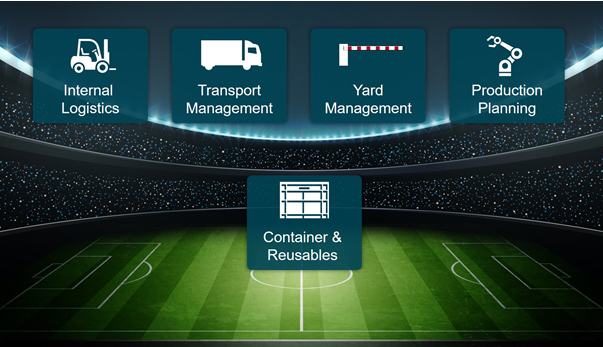Cimcorp, the global manufacturer and integrator of turnkey robotic handling solutions, is opening new premises in Willich, near Düsseldorf. An addition to the Group’s existing locations, Cimcorp Germany will operate as a sales and service facility for Central Europe, supporting Cimcorp’s controlled and moderate growth strategy.
Cimcorp’s involvement in the food distribution industry has expanded significantly in recent years, with many European grocery retailers having ordered its automation solutions. Cimcorp therefore sees this as the perfect time to return to Germany with its own facility to strengthen its position in Central Europe. “Although Germany has been a significant market for Cimcorp for over 30 years,” says Tero Peltomäki, CEO of Cimcorp Group (pictured), “recent orders – including major fresh food logistics systems for grocery retailers such as Netto and Edeka – mean that we need a local customer service presence in order to support these 24/7 distribution centres.”
The location of the premises in the heart of Europe will enable fast and reliable customer service right across the Continent. “Although high-quality remote support is sufficient, sometimes on-site services are needed. We think that it is vital for our large and growing customer base to have support services closer to them,” comments Peltomäki.
The choice of Düsseldorf was a natural one, as Cimcorp’s owner, Murata Machinery, has a number of premises and many employees in the area. Peltomäki explains: “The scope for co-operation opens up a wider range of solutions in collaboration with Murata’s logistics experts.”
There is huge potential for automation in the area, as approximately 60 million people live within a range of 200km of Willich. “We think that this location has many advantages,” continues Peltomäki. “Approximately a quarter of the food distribution in Europe takes place in this same area, so we are in the middle of our existing and potential customers, making the location ideal for serving German and Central European markets.”
Intralogistics automation is a highly competitive industry in Germany and Europe in general. “As such, we are delighted that we have such huge and well-known customers in this market area,” Peltomäki continues. “We have proven our reliability to some of the biggest grocery retailers in Europe. They have recognised the benefits of our unique automation solution: simple to use, reliable and scalable to meet the individual needs of different logistics centres.”
To begin with, the service centre will have a dozen employees. “We’re starting with a small but powerful team to support our existing customers, but we will grow our operations as needed,” concludes Peltomäki.






